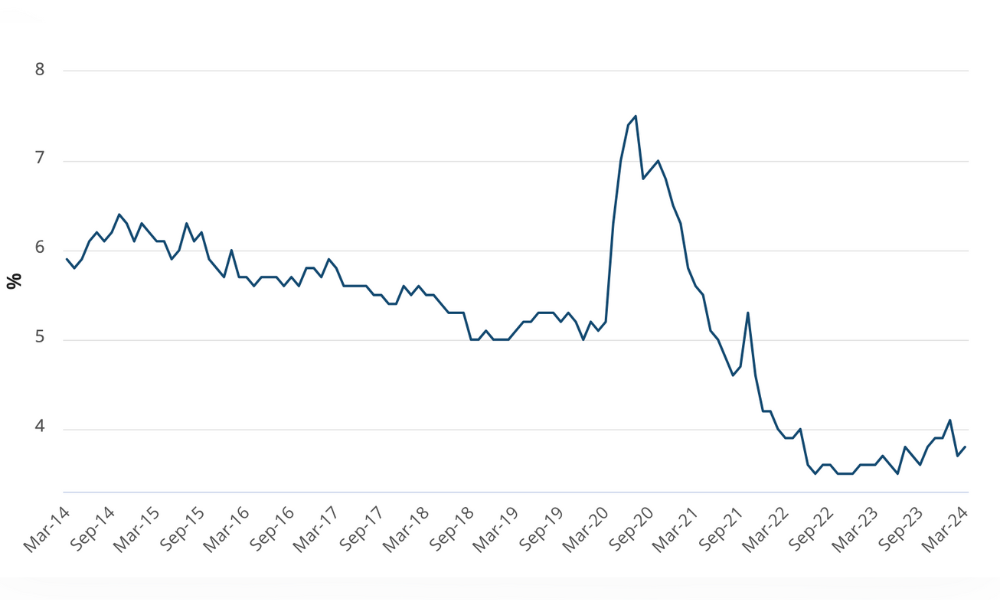With the GFC storm navigated on these shores, employees and jobseekers are now looking forward to a nice pay rise after months of inaction. But Australian employers aren’t quite ready to boost remuneration budgets to pre-GFC levels. Derek Berry, principal, human capital at Mercer, discusses the challenges this brings
With the GFC storm navigated on these shores, employees and jobseekers are now looking forward to a nice pay rise after months of inaction. But Australian employers aren’t quite ready to boost remuneration budgets to pre-GFC levels. Derek Berry, principal, human capital at Mercer, discusses the challenges this brings
As the economy continues to grow and the labour market strengthens, HR professionals are looking at a very different remuneration picture in 2010. Despite the recovery, however, Australian employers are not yet ready to boost remuneration budgets to pre-GFC levels. This may put them, as well as their recruitment teams, at odds with their employees, who are looking forward to generous pay increases after a period of relative austerity. The picture is further confused by different rates of recovery.
When compared to last year, it appears that some stability has returned to the global economy. With the downturn in Australia failing to materialise as expected, business and consumer confidence has generally improved, as have business performance results and profits. This outlook is supported by Mercer’s July 2010 Market Issues Survey (MIS) which shows that positive business results are expected by nearly two-thirds of the survey respondents, similar to 2008 levels.
Mercer’s Market Issues Survey also revealed that salary budgets have started to rise, increasing by 3.5 per cent after bottoming out at 3 per cent for the year ending December 2009. Mercer surveys show actual increases have exceeded budgets at 4.1 per cent, indicating salary movements are consistent with improved economic and business performance over the past six months.
Salary budgets are forecast to increase to four per cent for 2011, with some differentiation between states. It reflects greater confidence that the worst of the downturn is now behind us, and with similar stories being told in the media, employees may well expect higher salary movements.
With recent Mercer data showing a significant number of employees did not receive increases at the last review, a major challenge for Australian employers is meeting the expectations of employees who made sacrifices in the downturn and for HR professionals to manage the expectations that salaries will increase to compensate.
There are upward pressures on salary costs for employers, such as a steadily growing skills shortage and recent regulatory changes, but employers are still attempting to get their heads around what the post-GFC environment means for Australia. Until this is clearer, employers remain cautious and remuneration budgets will rise conservatively and at a slower rate than some would expect.
These factors have added to the already widening salary expectation gap, and if HR professionals are not prepared to manage these expectations by looking at other ways to keep their talent happy, they may lose them to an increasingly competitive market. Given organisations have limited budgets and remuneration pressures are coming from different sources, it is important for organisations to identify the employee segments and skills that deliver and drive value for the organisation. They will also need to work with their HR teams to develop effective benefit strategies to compensate for the widening expectation gap.
This means it’s critical for HR professionals to understand their workforce and tailor non-remuneration reward approaches accordingly. They need to review their reward offer to ensure it is aligned with the new business economics and then successfully communicate it to employees. The challenge is making a limited reward budget go a long way, so differentiating is essential, and this is where clarity of the value proposition or broader reward offer to employees comes into play.
Approaches HR professionals may want to take involve targeting specific reward offers, such as learning and development programs, wellness programs, workplace flexibility or discounted health insurance. The benefit they provide through attraction, retention and motivation of key employees may far outweigh the financial cost of these programs.
The post-GFC environment creates an ideal environment for employers and their HR departments to assess current reward strategies and ensure they align with their evolving business. It is also a time to look at the total reward offering and consider whether focussed employee programs and benefits may be used effectively to manage employee costs.








